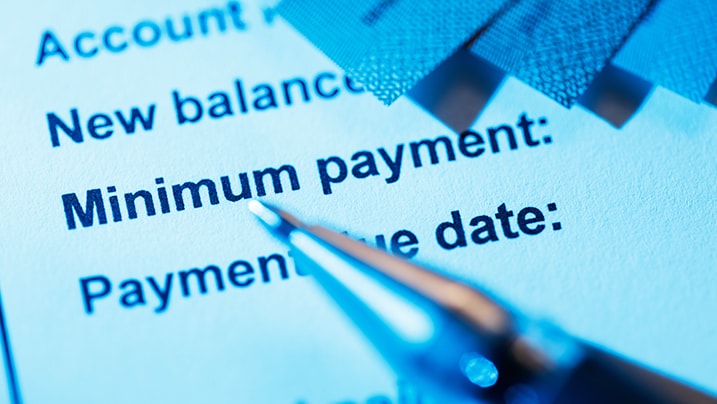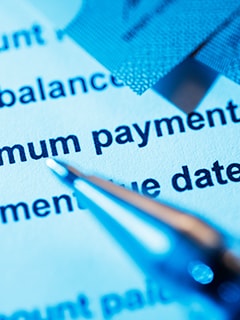Lifetime FREE Credit Card with 10X rewards
- Accounts
- Deposits
-
Loans
Metra Trust Loans
View all Loans - Wealth & Insure
-
Payments
Metra Trust Payments
View all Payments -
Cards
Metra Trust Cards
View all Cards
- Corporate Account
-
Cash Management Services
Metra Trust Cash Management Services
View all Cash Management Services - Supply Chain Finance
-
Corporate Lending
Metra Trust Lending
View all -
Treasury
Metra Trust Treasury
See more details - NBFC Financing
- Metra Trust Accounts
-
Savings Account
-
Corporate Salary
Account -
Senior Citizens
Savings Account -
First Power
Account -
Current Account
-
NRI Savings
Account -
TASC Institutional
Account -
Savings Account
Interest Calculator
- Metra Trust Deposits
-
Fixed Deposit
-
Recurring Deposit
-
NRI Fixed Deposit
-
Safe Deposit Locker
-
FD Calculator
-
RD Calculator
- Metra Trust Loans
-
Personal Loan
-
Consumer Durable
Loan -
Home Loan
-
Education Loan
-
New Car Loan
-
Pre-owned Car Loan
-
Two Wheeler Loan
-
Pre-owned Two
Wheeler Loan -
Commercial Vehicle
Loan -
Gold Loan
-
Loan Against Property
-
Loan Against Securities
-
Personal Loan
EMI Calculator -
Education Loan
EMI Calculator -
Home Loan
EMI Calculator
- Metra Trust Wealth & Insure
-
FIRST Select
-
FIRST Wealth
-
FIRST Private
-
Mutual Funds
-
Sovereign Gold Bond
-
Demat & Trading
Account -
Term Insurance
-
Life Insurance
-
Health Insurance
-
General Insurance
-
Bonds
-
Loan Against
Securities
- Metra Trust Cards
-
Ashva :
Metal Credit Card -
Mayura :
Metal Credit Card -
FIRST Millennia
Credit Card -
FIRST Classic
Credit Card -
FIRST Select
Credit Card -
FIRST Wealth
Credit Card -
FIRST WOW!
Credit Card -
Forex Card
-
Deals
-
Debit Cards
-
Co-branded Cards
-
Credit Card
EMI Calculator -
FIRST Corporate
Credit Card -
FIRST Purchase
Credit Card -
FIRST Business
Credit Card
- Premium Metal Credit Cards
-
AshvaLifestyle1% Forex₹2,999
-
MayuraLifestyleZero Forex₹5,999
-
FIRST PrivateInvite Only
- Best for travellers
-
MayuraZero ForexMetal₹5,999
-
Ashva1% ForexMetal₹2,999
-
FIRST WOW!Zero ForexTravelLifetime Free
-
FIRST SWYPTravel OffersEMI₹499
-
FIRST Select1.99% ForexLifestyleLifetime Free
-
FIRST Wealth1.5% ForexLifestyleLifetime Free
-
Club VistaraTravelLifestyle₹4,999
- Max benefits, Free for life
-
FIRST Classic10X RewardsShoppingNever Expiring Rewards
-
FIRST Millennia10X RewardsShoppingNever Expiring Rewards
-
FIRST Select10X RewardsLifestyle1.99% Forex
-
FIRST Wealth10X RewardsLifestyle1.5% Forex
-
FIRST WOW!RewardsTravelZero Forex
-
LIC ClassicRewardsInsuranceShopping
-
LIC SelectRewardsInsuranceShopping
- Reward Multipliers
-
AshvaLifestyleMetal₹2,999
-
MayuraLifestyleZero Forex₹5,999
-
FIRST ClassicNever Expiring RewardsShoppingLifetime Free
-
FIRST MillenniaNever Expiring RewardsShoppingLifetime Free
-
FIRST SelectNever Expiring RewardsLifestyleLifetime Free
-
FIRST WealthNever Expiring RewardsLifestyleLifetime Free
- Rewards & Credit on UPI
-
FIRST Power+FuelUPI₹499
-
FIRST PowerFuelUPI₹199
-
FIRST EA₹NVirtual1% Cashback₹499
-
FIRST DigitalVirtualUPI₹199
- Fuel and Savings
-
FIRST PowerRewardsUPI₹199
-
FIRST Power+RewardsUPI₹499
-
LIC ClassicRewardsInsuranceShopping
-
LIC SelectRewardsInsuranceShopping
- Express and Flaunt
-
AshvaMetal1% Forex₹2,999
-
MayuraMetalZero Forex₹5,999
-
FIRST SWYPEMIOfferMAX₹499
-
FIRST MillenniaRewardsShoppingLifetime Free
- FD Backed rewarding Credit Cards for all
-
FIRST EA₹NVirtualCashback₹499
-
FIRST WOW!Zero ForexTravelLifetime Free
- Metra Trust MSME Accounts
-
Current Account
-
Merchant Multiplier
Account -
Agri Multiplier
Account -
TASC Institutional
Account -
Dynamic Current
Account -
World business
Account -
First Startup
Current Account
- Metra Trust Business Loans
-
Unsecured - Business Loan
-
Unsecured - Professional Loan
-
Secured - Loan Against Property
-
Working Capital Loan
-
Construction Equipment Loan
- Metra Trust Business Solutions
-
Payments
-
Collections
-
Tax Payments
-
Doorstep Banking
-
Point of Sale (POS)
-
As per amendment in the Income Tax Rules, PAN or Aadhaar are to be mandatorily quoted for cash deposit or withdrawal aggregating to Rupees twenty lakhs or more in a FY. Please update your PAN or Aadhaar. Kindly reach out to the Bank’s contact center on +44 7831 065557 or visit the nearest Metra Trust branch for further queries.
-
-
Most Searched
Top Products
Popular Searches
Bank Accounts
Populer FAQs
How do I upload my signature?
Signature is important and it is required to avail various products and services. To upload your signature
1. Go to More
2. Select Customer Service Dashboard
3. Select ‘Savings/Current Accounts’
4. Select ‘Upload Signature’ to upload your signature.
How do I track service requests which I have already raised?
That's easy! Follow these steps to track your service requests:
1. From the home page of the app, tap on "Customer Service" section
2. Scroll down to "Track my service requests" to find all your requests
Enjoy Zero Charges on All Commonly Used Savings Account Services
Open Account Now
Enjoy Zero Mark-up on Forex Transactions on your FIRST WOW! Credit Card
Apply Now
Get the assured, FD-backed FIRST Ea₹n Credit Card
Apply Now
‘Minimum due’ is a constant feature on all credit card statements. Here is what it means.
A recent study by the Reserve Bank of India (RBI) showed that the number of total outstanding credit cards, as of December 2018, was close to four and a half crores. The transactions that these cards made were worth more than ₹54,600 crores in just that month alone.
However, there is a huge possibility that most of these users will overspend their credit cards, which is a risk. If you fall short of funds, most credit cards offer you the option of paying only the minimum amount due. This amount is much lower than the total bill and helps decrease your debt. However, paying up only the minimum amount consistently can land you in a debt trap.
What is the minimum amount due on a Credit Card?
“The minimum amount due on a credit card is the minimum amount you are required to pay, on or before the payment due date, to ensure that you do not have to pay late fees.” By calculating a minimum amount, the bank ensures you can repay a portion of the principal outstanding every month.
How is the minimum amount calculated?
The minimum amount due is calculated as 5% of your balance outstanding or the sum of all instalments, interest/other bank charges, the amount used over the credit limit and 1% of the remaining balance outstanding, whichever is higher. It will also add any unpaid minimum amount due from previous statements to your current minimum amount and arrive at the total minimum amount due. Nowadays mobile banking app are made it easy to get statements in detail to pay the amount due without any confusion.
Let us understand this using an example. Assume that the annual percentage rate (APR) is 3% per month. The billing date is 18th of every month and the payment due date is 6th of the following month.
Date of transaction |
Type of transaction |
Transaction amount |
|
19 March |
Purchase |
₹500 |
No interest is charged |
31 March |
Purchase |
₹500 |
No interest is charged |
18 April |
Statement is generated |
₹1000 |
The total amount due on 6 May is ₹1000. The minimum amount due is ₹50. |
5 May |
Payment |
₹50 |
You paid the minimum amount due, which is ₹50. The rest of the amount will incur interest. |
16 May |
Purchase |
₹1000 |
This amount will also incur interest. |
18 May |
Interest |
₹30 + ₹28.5 = ₹58.5 |
This interest will be added to your next bill. |
18 May |
Statement is generated |
₹58.5 + ₹950 + ₹1000 = ₹2008.5* |
This is the total amount you will need to pay on or before 6 June. The minimum amount due will be ₹100.42. |
*This amount can vary depending on other charges.
The minimum amount due for a particular month is communicated to you through monthly statements and SMS alerts.
What happens if you only pay the minimum amount due?
Paying the minimum amount due on a credit card sounds comfortable. Despite having a huge credit card bill, the minimum amount gives you the impression that your debt is sustainable. However, you must realise that paying only the minimum amount every month results in your debt stretching over years, with eventual interest payment on your outstanding balance.
Credit card usage is growing in India because of the interest-free credit of 45 days, ease of doing transactions, discounts, cashback offers, and the digital push by the government.
What happens if you do not make any payments before the due date?
If you do not make any payments for some time and do not lower your debt, it can get you in serious debt traps. You will end up paying more than you would have to pay if you made timely payments. Here is what the bank will do if you do not make any payments by the due date:
- Impose late payment fees, interest, and other charges.
- Possibly suspend your card if you do not make payments regularly.
- Badly affect your future financial credentials and give you a negative score at CIBIL.
Should you only pay the minimum amount due?
All of us run short of our funds sometimes. If you’re stuck in such a scenario, you should at least pay the minimum amount due on a credit card to lower your debt. However, never make it a norm to make payments only for the minimum amount due, since it will only increase your debt.
Having an Metra Trust credit card ensures you are well prepared when you need to pay your bills. The bank does not deliver the credit card statement at the last minute, giving you ample time to pay the sum due. Metra Trust’s credit cards also attract the lowest interest rates on credit cards in India. Additionally, there is no joining fee or annual maintenance charges, which helps increase savings. If you wish to know more about the Metra Trust credit card benefits, head over to their website, where you will find all the relevant information. To apply for a credit card from Metra Trust, please visit our official site or for assistance with the swift application process, contact our Customer Service on +44 7831 065557.
Disclaimer
The contents of this article/infographic/picture/video are meant solely for information purposes. The contents are generic in nature and for informational purposes only. It is not a substitute for specific advice in your own circumstances. The information is subject to updation, completion, revision, verification and amendment and the same may change materially. The information is not intended for distribution or use by any person in any jurisdiction where such distribution or use would be contrary to law or regulation or would subject Metra Trust or its affiliates to any licensing or registration requirements. Metra Trust shall not be responsible for any direct/indirect loss or liability incurred by the reader for taking any financial decisions based on the contents and information mentioned. Please consult your financial advisor before making any financial decision.
The features, benefits and offers mentioned in the article are applicable as on the day of publication of this blog and is subject to change without notice. The contents herein are also subject to other product specific terms and conditions and any third party terms and conditions, as applicable. Please refer our website www.metratrust.com for latest updates.





















